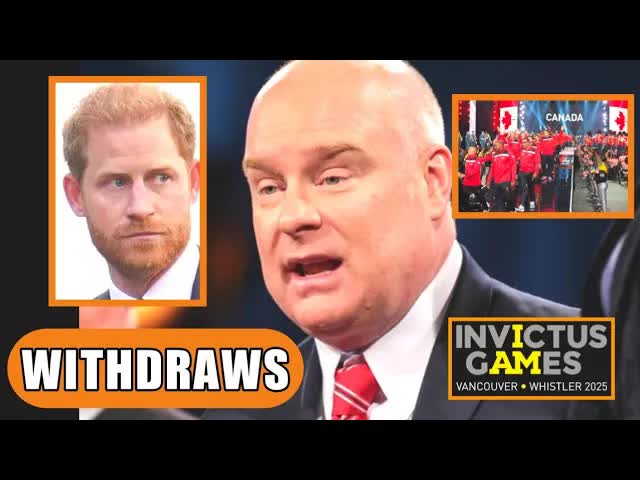The News
Prince Harry’s Withdrawal Casts Shadow Over Invictus Games Anniversary
A dark cloud looms over the upcoming 10th anniversary of the Invictus Games as Prince Harry is reportedly opting out of the event set to take place in London in September 2024.
This unexpected news has sent shockwaves through the public, igniting rampant speculation about the motives behind his decision.
Among the swirling theories, one stands out as particularly troubling: the notion that Harry fears a negative reception, including potential boos from the British crowd.
The relationship between Prince Harry and the British public has been anything but smooth sailing.
Since stepping back from royal duties and relocating to California with Meghan Markle, the Duke of Sussex has faced mounting criticism.
British tabloids have painted a less-than-flattering picture of the couple, often portraying them as self-serving royals who prioritize personal interests over their royal responsibilities.
As a result, public sentiment toward Harry has soured considerably, leading many to question his motivations regarding the Invictus Games.
Some observers speculate that Harry's choice to withdraw is a strategic move aimed at sidestepping public embarrassment.
The Invictus Games, which would thrust him into the limelight, carries the risk of an unwelcoming reception.
By staying away, Harry could be attempting to shield himself from further straining his already fragile rapport with the British public.
However, this theory casts an unflattering light on the Prince, suggesting that he might prioritize his image over a cause that is deeply meaningful to him.
The Invictus Games are not just another royal event; they represent a personal passion for Harry.
Having served ten years in the British Army, he has forged a strong bond with the veteran community.
To choose avoiding potential jeers over supporting these injured service members paints a harsh picture of his character.
Yet, there may be other reasons for his absence that deserve consideration.
Security concerns could play a significant role in Harry's decision.
Since stepping back from royal duties, the security arrangements for the Duke and Duchess of Sussex have stirred controversy.
Initially funded by British taxpayers, this arrangement faced considerable backlash.
It's plausible that Harry doesn't want to impose additional security burdens on the Invictus Games or the British government, leading him to decline attendance.
Logistics could also be a factor.
With a young family and a life anchored in the United States, traveling across the Atlantic for a multi-day event presents its own set of challenges.
The demands of parenthood and his growing career in America might render attending the Invictus Games impractical rather than a deliberate snub.
Regardless of the rationale, Harry's absence casts a long shadow over the Invictus Games, an event designed to honor the resilience of wounded veterans.
Instead of celebrating triumph and strength, the occasion risks becoming entangled in royal drama.
This narrative only serves to exacerbate the negative perceptions surrounding the Duke and Duchess of Sussex.
Meghan Markle, always a focal point of media scrutiny, inevitably finds herself drawn into the conversation.
Some commentators suggest that her influence may be steering Harry away from engaging with the British public, which only fuels the perception of her as a divisive figure.
This adds another layer to the ongoing saga, intertwining their personal choices with public opinion.
As it stands, the true reasons behind Harry's withdrawal remain shrouded in mystery.




































































